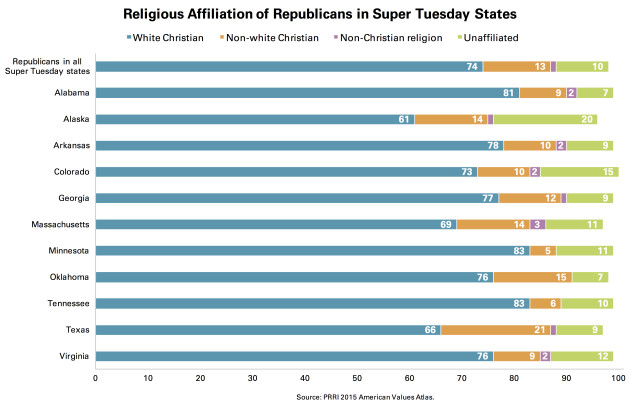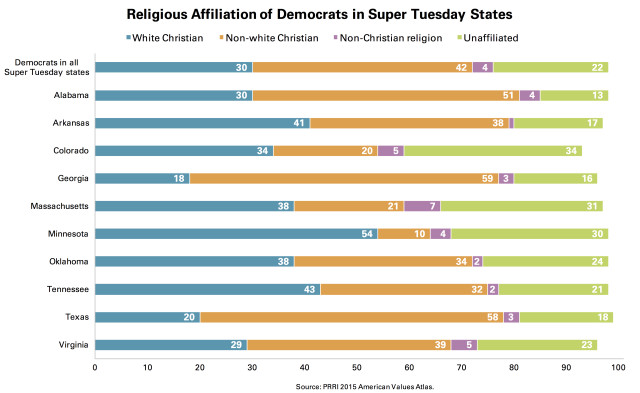Next Tuesday is Super Tuesday, a pivotal day in the 2016 primary calendar, with residents in 12 states participating in primaries or caucuses. To better understand the religious landscape of these states, we used the American Values Atlas to look at Republicans’ and Democrats’ religious diversity, or lack thereof, within each state.
Republicans’ key base of white Christians is well represented across the Super Tuesday states. Nearly three-quarters (74 percent) of Republicans in all Super Tuesday states are white Christians.
In fact, a majority of Republicans in every Super Tuesday state identify as white Christian, including large majorities of Minnesota (83 percent), Tennessee (83 percent), and Alabama (81 percent). Texas’ large Hispanic American population lends to a slightly more diverse G.O.P. crowd, with 21 percent of Republicans in the state identifying as non-white Christian.
In comparison, Democrats in Super Tuesday states are much more religiously diverse, with Democrats more than half as likely as Republicans to identify as white Christian. A plurality (42 percent) of Democrats in the Super Tuesday states identify as non-white Christians, with 30 percent identifying as white Christians, 22 percent as unaffiliated, and four percent as another non-Christian religion.
Thanks to large black and Hispanic populations, a majority of Democrats in Georgia (59 percent), Texas (58 percent), and Alabama (51 percent) identify as non-white Christian. Colorado boasts one of the largest religiously unaffiliated populations at 34 percent, equal to the proportion of white Christians in the state. Only in Minnesota (54 percent), a state that is already overwhelmingly white, do white Christians enjoy a majority among Democrats.
To explore the unique religious landscape of your state, explore the American Values Atlas.
* Due to small sample size, Vermont and Wyoming are not shown in the charts.

